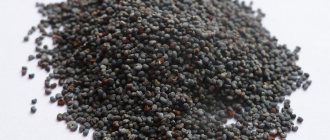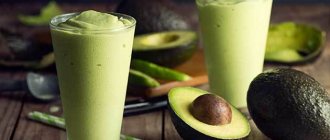Meat during pregnancy is one of the products that must be present in a woman’s diet. Protein of animal origin is necessary for the full formation of the fetus, because when broken down it turns into amino acids, which serve as building material for the cells of a new person.
Of course, adherents of vegetarianism may not agree that meat cannot be avoided. However, it should be remembered that the period of pregnancy is a time when a woman should think not only about herself, but also about the new life that has arisen in her.
What to eat to make pregnancy faster?
It is a common practice among women to eat healthy after they find out they are pregnant. And before? After all, the state of the mother’s body is important in the early stages of pregnancy, from the first days of conception. In addition, a sufficient amount of all useful substances makes it possible not to deplete the mother’s body, i.e. teeth, hair, skin do not suffer - mommy remains beautiful and well-groomed.
Proper nutrition at the stage of planning a child is not only important for both parents, but sometimes becomes a fundamental factor. For example, overweight women often cannot get pregnant. And after losing a few kilograms and choosing a balanced diet, they easily become happy mothers. In women, sugar in the body often increases during pregnancy.
So, what should you pay attention to? If you are planning a new addition to your family, you should increase the number of dishes with asparagus and leafy vegetables, broccoli, chicken liver, papaya, and eggs. They are a valuable source of Vitamin B9 (folic acid). B9 is responsible for the production of hormones in the female body: progesterone and estrogens. Without them, pregnancy will not be able to occur and develop fully.
Lamb, seafood, sea fish, and beef will help replenish zinc reserves. For women, it is valuable because it promotes a regular cycle. And in men, it stimulates the production of testosterone and ensures sperm motility.
Vitamin C deficiency reduces sperm quality. The future dad should regularly eat citrus fruits and currants. Vitamin E is important for the process of attachment of the embryo to the wall of the uterus. Affects the functioning of the reproductive system of both men and women in general. Contained in lettuce, greens, nuts, flaxseed, corn, sunflower and olive oil, buckwheat, oats, millet, barley. Food retains its beneficial properties best if the food is baked, steamed or grilled without fat or oil.
It is important to maintain water balance. It is recommended to drink up to 2 liters of water. It is advisable that half of the total norm be still water, the other half - juices, green tea, compotes and decoctions. Excessive consumption of coffee or strong tea can cause hormonal imbalances and difficulties in planning a toddler.
Product value
Due to its rich composition, the benefits of beef for the human body are very great:
- The protein contained in meat is easily absorbed by the body and serves as a valuable building material for tissues.
- Micro and trace elements nourish muscles and bones.
- Vitamin C ensures the strength of vascular walls, A is useful for the visual organs, B12 and B6 contribute to better absorption of iron, PP is needed for the production of enzymes.
- Boiled beef included in the menu helps heal wounds, burns, injuries, and speedy recovery from infectious diseases.
- Since beef has little fat and no carbohydrates, it can be eaten by people with diabetes.
Nutritionists consider beef meat suitable for use in dietary nutrition.
What to exclude from the diet?
First of all, alcohol (smoking is also prohibited) and unhealthy “crispy” foods (crackers, chips) should be removed from the diet even at the stage of planning a baby. A large number of flour and cream products containing various additives: leavening agents, thickeners, flavorings, flavor enhancers, dyes. Very hot seasonings and sauces should be limited.
You should also be especially careful when handling seafood. Although the general benefits for the human body and pregnant women in particular have long been proven, allowances should be made for today’s ecology and the way of growing the same shrimp. Let's take a closer look. Industrial fishing of shrimp and various sea delicacies is being replaced everywhere by growing them on special farms with the obligatory use of antibiotics and various additives that stimulate their growth.
The second side is ecology. Along with the most beneficial substances, toxins accumulate in gigantic volumes in mussels and other seafood, given the constantly worsening situation with environmental pollution by various chemicals. Therefore, eating seafood during pregnancy is a very controversial issue today and doctors are better off replacing them with sea fish.
Also, expectant mothers are often recommended lean meat, including chicken. I would like to correct that I mean homemade chicken. The chicken must be raised in a household without the use of various medications and additives. The chicken we buy in the supermarket does not contain the same amount of useful nutrients and, moreover, is generously stuffed with all kinds of growth stimulants.
Below is a table of products to ensure that your mother’s nutrition is complete. There is also a detailed list of foods that are best avoided.
Beef stew
If you like well-cooked beef stew, recipes with photos will help you master how to cook it to perfection. Very simple beef stew recipes, accompanied by step-by-step photos and detailed cooking instructions, will explain all the nuances of how to cook beef stew using one method or another. Discover how to make beef stew at home with our recipes and add dozens of amazingly delicious dishes to your menu.
Classic beef stroganoff is a super cool and super tasty dish! We don't miss this dish even for a second. A very simple and clear recipe….more
Stewed beef with gravy is a dish that goes well with almost any side dish. Let's look at our version of the recipe for how to cook beef stew with gravy....more
I want to share with you my most delicious beef recipe. I add not only a lot of prunes, but also tomato sauce, not paste, but a sauce based on canned tomatoes...more
I propose to serve today a hearty and hot meat dish, which is very easy to prepare and is always a success (especially in the cold season). Roast is traditionally served in a pot....more
The name is wonderful, but it implies an old Russian dish, a close relative of either julienne (only without cheese) or roast. It is always made from several types of meat. Try it!…more
Beef gravy will ideally complement any side dish and make it tasty and satisfying. Juicy beef and thick sauce give the dish a rich new taste. Cooking is not at all difficult, but it turns out delicious...more
Ideal meat has a tender texture with a juicy center. Many will agree with this. But how difficult it is to achieve such a result, especially on the first try. But a good recipe will help you. Learn it
Source
What might mommies face? What to do?
With each new month of pregnancy, not only the mother’s appearance changes, but also the “inner” one. Which is often associated with unpleasant phenomena. Since there is no special place inside the mother for the future baby, as he grows, all the internal organs will have to make room. Therefore, pregnant women often experience discomfort from various vital systems.
The main signs of pregnancy are related to the functioning of the digestive system. For example, a pregnant woman’s stomach moves from its usual place all the way to the chest. Due to the hormonal boom in the female body, the muscle tone of the digestive tract and intestines changes. Therefore, you often feel nauseous after eating, and may suffer from flatulence, frustration, or constipation.
Mommies may be tormented by burping food. It is also associated with hormonal changes. Enzymes and beneficial microbes have extra time to “work.” That is, fermentation and gas formation in the stomach increases, and the body, at the level of reflexes, gets rid of excess air by belching. Doctors recommend not consuming starchy foods (potatoes, pasta) or foods containing sorbitol (a sweetener).
To get rid of belching, try not to eat while lying down, even if it’s just an apple or a cracker. You need to eat often, but in small quantities; avoid large (it is better to divide them into two meals each) breakfasts, lunches and dinners. In such cases, decoctions of chamomile, mint, calamus roots, raspberries and blackberries help well.
Important! Any herbal preparations, like medications, have contraindications. Self-medication with folk remedies can harm both the expectant mother and the pregnancy as a whole.
Also, mothers suffer from heartburn and often have a sour mouth after eating. This is also due to the extreme working conditions of the stomach. Acid may enter the esophagus and be felt in the mouth. Do not lie down to rest immediately after eating; it is advisable to walk around for a while. If such discomfort is not accompanied by pain in the hypochondrium and weakness, then mommy has nothing to worry about.
For the same reasons, bitterness occurs in the mouth after eating during pregnancy. If this was not observed before pregnancy, then there is no need to panic or resort to any therapy. But if bitterness tormented the mother even before pregnancy, then this is a sign of a disease (for example, gastritis), which may worsen during pregnancy.
If you feel sick after eating, doctors recommend taking small portions of food, possibly in a reclining position. It is highly undesirable to drink food. It is better to take water or compote 30 minutes before meals or the same period of time after. Among the foods that can help alleviate the condition are grapefruit, tangerine, sauerkraut, ginger, raisins, seeds, green tea, pomegranate, apples, quince, pickled or pickled cucumbers.
At such moments, it seems that time is dragging on for an impossibly long time and this state will never pass. Relatives of a pregnant woman need to create the most comfortable conditions for her, provide help, support and understanding.
Why do you want raw meat during pregnancy?
The gastronomic preferences of expectant mothers sometimes cause bewilderment. However, nothing happens for nothing, and with an unmotivated craving for unusual combinations of foods, a pregnant woman’s body only signals its needs. Thus, a strong desire to taste a piece of raw meat or minced meat arises due to an acute lack of iron, which leads to the development of iron deficiency anemia.
Every third woman encounters a pathological condition during pregnancy in the second trimester. Hemoglobin deficiency causes various disturbances in the development of the fetus, and therefore requires immediate replenishment. Anemia most often affects residents of megacities and office workers who spend a lot of time in closed, rarely ventilated rooms. Due to the same anemia, the expectant mother craves chalk, coal, whitewash or raw dough.
Of course, eating raw meat is strictly prohibited for anyone. Nevertheless, such subconscious reactions of the brain cannot be left unattended - a pregnant woman needs to share her unusual gastronomic “fantasies” with her doctor.
You can teach your baby to eat healthy foods while still in the womb.
It has long been known among mothers that a baby can distinguish tastes. Scientific research and intrauterine filming have shown that in the tenth week of development, the baby, swallowing amniotic fluid, can feel its taste. In many educational programs and articles you can read that babies at this age can distinguish between salty, sour and sweet. This is noticeable by the fact that the baby winces if the taste is sour or a semblance of a smile appears - if the mother “treated” him to something sweet.
But the taste palette of dishes is much more diverse and there is no clear line between tastes. Does the baby feel it? It turns out that the taste of the dishes eaten by the mother is transmitted not only through amniotic fluid, but also directly through the blood. This is not just an interesting fact, but an important survival skill for mammals. The reason is that nature teaches young animals not to eat everything. Otherwise, how do baby carnivores know that they need to eat meat, but herbivores don't try to taste meat? For example, a baby cuttlefish recognizes its prey before it even emerges from the egg.
So it turns out that you can even teach your baby to eat garlic with pleasure while still in the tummy. And judgments about the inadmissibility of garlic and spicy dishes during breastfeeding and late pregnancy are prejudices. Allegedly, the baby will not take the breast. Naturally, in moderation and if there are no other contraindications.
So, Peter Hepper, an employee of Queen's University Belfast, studied the influence of the diet of expectant mothers on the taste preferences of babies. During the research, 33 pregnant women were observed: half ate dishes high in garlic and garlic sauces, while others did not consume such a product at all. After birth, the babies retained a positive attitude towards this vegetable several years later. They ate dishes with garlic without any problems even at 8-9 years old.
The same effect is observed not only with pronounced flavors, like garlic, but also with softer ones, such as carrots. During another experiment, expectant mothers of one group drank carrot juice and water during pregnancy and in the first stages of feeding, while others only drank water. In the course of analyzing the facial expressions of babies, it was found that the baby can recognize the tastes that he fell in love with in his tummy.
Important! Scientists admit that if the taste of milk changes due to a sudden change in the mother’s diet, problems with breastfeeding may arise.
That is, when a pregnant woman eats a lot of spicy food or sweets, and during breastfeeding, on the advice of a doctor, adheres to a diet, the milk will change the taste familiar to the child. A baby may refuse mother's milk for no apparent reason. Unless, of course, other reasons are excluded, for example: disease of the child’s mouth or ears, lack of milk, or an “uncomfortable” straight nipple (when the baby has nothing to grab onto, occurs in first-time mothers).
Let's summarize all of the above. It is necessary to follow a certain diet that includes in the diet during pregnancy a maximum of healthy foods that can be eaten during breastfeeding. So that the taste of milk remains familiar to the baby. If you want your baby to be inclined to eat salads, herbs and garlic, then include these foods in your diet on an ongoing basis. If a mother abuses junk food, all kinds of sweets and starchy foods, this can serve as the basis for the baby’s unwanted preferences.
Beneficial properties of lamb for humans
Mutton is the meat of a slaughtered ram, lamb or sheep. Moreover, not just any sheep’s meat can be eaten. The most delicious, tender and low-calorie meat is lamb meat, especially that which was fed only on mother’s milk.
But it is advisable to slaughter adult animals before they reach two years of age, then there is still a chance to get tasty, nutritious meat. In older individuals, the meat will be tough, with an unpleasant specific odor.
Among other types of meat, lamb is considered the lowest in calories and the healthiest in its composition.
For example, it contains almost 30% less fat than pork. But it is much richer in iron content than other types of meat.
Edema. Why do they torment pregnant women and how to deal with them?
During the period of bearing a baby, the volume of fluid in the body of the expectant mother doubles. Swelling is not uncommon in this condition. But in one case, this does not harm the child and the woman herself and disappears almost immediately after the birth of the baby, and in another, it can have serious consequences for the mother.
It is important to notice the manifestation of edema in time. Most often, the legs, nose, cheeks (less commonly, the stomach or arms) swell. With severe swelling, the face of the expectant mother can change quite a lot. The eyes become very small. Rings and shoes become small. Pregnant women experience significant discomfort. When you press on the skin in the area of swelling, the resulting hole lasts for quite a long time.
To prevent or alleviate swelling, you can use simple tips:
- maintaining a proper diet not only when the problem appeared, but also in the first months of pregnancy;
- exclude constricting and tight-fitting clothing and uncomfortable shoes;
- smoking also contributes to the development of swelling;
- do not sit cross-legged; after a long walk, it is advisable to rest with your legs elevated for 20 minutes;
- walk more in the fresh air, especially if a woman has a sedentary job;
- if the expectant mother has noticeably gained weight, a diet during pregnancy for weight loss is recommended, it is advisable to coordinate the menu with the doctor, fasting days on apples or kefir are also practiced;
- special gymnastics under the supervision of specialists.
Since the uterus is actively growing, and pressure is exerted on large vessels, swelling occurs. The outflow of blood in the legs and the work of the kidneys to remove fluid are hampered. Physiological edema occurs. It is a natural “cost” of pregnancy and does not threaten anything other than discomfort.
This inconvenience goes away every time after a good rest. And if a woman does not watch her diet, sits a lot and does not walk, physiological edema can develop into a serious problem requiring the help of doctors. When to be wary:
- swelling does not go away after a good long rest;
- with protein in the urine;
- the woman wakes up with quite severe swelling;
- difficulty breathing (shortness of breath);
- pressure;
- the appearance of swelling of the face and fingers, bending over heavily - such symptoms may indicate the development of late toxicosis.
Surprisingly, swelling, like everything else in our body, also has its own function. As the fetus develops, the woman becomes clumsy and somewhat clumsy. Excess fluid in the tissues creates a small “margin of safety”, i.e. In case of falls, it will somewhat soften the consequences. Part of the excess fluid in the body is consumed during labor.
Because during the birth process, the mother does not eat or drink for almost a day due to contractions and pushing. Blood losses during childbirth are also partially compensated from the body's reserves.
The benefits of pork
Pork is rich in protein, which is the basis for the construction of new cells and growth of the child. The composition contains B vitamins and choline. Thanks to these components, the level of cholesterol in the blood is reduced, immunity is increased, the functioning of the nervous system is normalized, metabolism is enhanced, the skin and mucous membranes are protected from the invasion of infection.
Pork contains vitamins A, D, E, essential amino acids and minerals: iron, potassium, phosphorus, magnesium, sodium. 100 g of pork contains 24 g of protein, 11 g of fat, and the calorie content of lean pork is 160 kcal.
Due to the content of vitamins and minerals, pork benefits the body:
- efficiency increases, vital energy increases;
- has a beneficial effect on the nervous system, helps relieve fatigue;
- has a positive effect on the activity of the circulatory system;
- allows you to replenish milk deficiency and enhance lactation in women during breastfeeding;
- helps strengthen bones;
- strengthens the immune system.
How to relieve swelling?
For normal bearing of a baby, three components are needed: water, salt, proteins.
Water should enter the pregnant woman’s body, but be excreted and not accumulate. Salt can retain moisture in tissues and thus contribute to physiological edema. Therefore, a salt-free diet for edema is one of the ways to alleviate this condition.
The principle is very simple. Salt is completely excluded from the diet. Products are steamed without using steam. To prevent the taste of food from being particularly unusual or unpleasant, salt can be replaced with lemon juice or dried garlic (provided there are no contraindications).
You should also exclude store-bought products that may contain salt or monosodium glutamate. For example, you should not put ketchup, soy or any other sauce, or mayonnaise in the grocery cart.
This diet, like any other, should be used as prescribed by a doctor. The period of use is about two weeks. Such restrictions will help prevent the development of severe forms of swelling and the appearance of excess weight.
Important! Abuse of a salt-free diet can lead to disruption of the water-salt balance.
How many kilograms should you gain during pregnancy?
This is the question asked by all mothers who began to closely monitor the numbers on the scales in the first trimester of pregnancy. If you believe medical books and nutritionists, then the normal “extra” weight for the entire pregnancy will be from 9.5 to 13 kg. It turns out not that much. Especially when you consider that the kilograms gained are not only fat deposits. The weight is distributed as follows (approximately):
- baby - on average 3200-3400g;
- uterus, which is constantly increasing - on average 960g;
- placenta weight - 650g;
- breasts increase by 400/700g;
- amniotic fluid - 700/800ml;
- fluid that accumulates in tissues can add up to 1500 g;
- The fat deposits themselves amount to up to 3000g.
The above data is average. For each woman, the norm is calculated individually. One of the parameters that you can monitor to monitor your weight is the body mass index (hereinafter referred to as BMI).
UTI = Pre-pregnancy weight (kg) ÷ Height of expectant mother (m)
Body weight is considered normal if this indicator is in the range from 19.8 to 26. A deviation towards increase indicates excess weight, a lower indicator indicates underweight. Next, using the table below, you can adjust your weight.
For example, if a mother is overweight, then at 4 weeks of pregnancy you need to try to ensure that the UTI does not increase by more than 0.5, so as not to gain excess weight. If a woman was very petite before pregnancy and is not gaining weight well, then at week 4 her UTI should increase by at least 0.9.
According to the table, it is noticeable that the pregnant woman gains most of the “additional” weight after the 20th week. Ideally, mothers' weight gain should be due to the baby's growth, and fat should make up only a small portion of the gained kilograms.
From the moment of conception to the 20th week, the expectant mother should gain about 2.5 kg, i.e. 0.5 kg for each month of pregnancy. In the second half of pregnancy, the baby formed and is now only growing. Therefore, his mother will also grow by 0.5 kg per week.
Important! Fasting during pregnancy is strictly prohibited, even if more than enough “reserves” have accumulated. This does not contribute to systematic weight loss; it deprives the mother of strength and the baby of substances necessary for development.
Any diet should not last longer than 2 weeks.
Protein diet for excess weight and edema
This nutritional system is very popular not only among pregnant women, but is also widely used by those who monitor their weight and health. Doctors resort to it if a pregnant woman is overweight or suffers from edema.
Protein diet - the name speaks for itself. This is a diet that includes a large amount of protein foods.
It is important to understand that moderation is important in everything. The diet must be balanced. It is undesirable to oversaturate the body with protein, which can complicate the functioning of the kidneys. Easily digestible carbohydrates, which are contained in chocolate, condensed milk, baked goods, and sugar, are not welcome in this nutritional system. They are quickly deposited by the body as “spare” fat. But complex carbohydrates must be consumed by the expectant mother in the form of porridge. They should be eaten more during the day; in the evening, meals should be light.
Important! You cannot eat exclusively protein foods. A weight loss menu should include foods containing complex carbohydrates and other beneficial substances. Carefully study the features of your diet and discuss it with your doctor.
A pregnant woman should give preference to easily digestible varieties of meat. This is rabbit, young beef, chicken, lamb (lean), turkey. Fermented milk products can provide not only proteins, but also calcium for the baby’s growing bones. It’s better to drink homemade yoghurts and kefir, but boiled milk won’t hurt either - two glasses a day are enough. Eggs are also rich in protein.
But remember that eggs in large quantities can cause allergies, so stick to reasonable proportions in everything. It is preferable to cook eggs in a bag. Don't forget about sea fish.
The expectant mother should not feel heavy after eating. On the contrary, leave the dinner table with a slight feeling of hunger, which will pass in 10-15 minutes.
As for the methods of preparing dishes for a woman in an interesting position, the recommendations remain the same: bake, steam, without oil.
You should avoid using:
- salts and products containing salt, artificial additives;
- red meat;
- sweets, products made from white flour;
- dairy desserts;
- fatty sauces, mayonnaise, cream, margarine;
- smoked food, chips.
Vegetables and fruits are irreplaceable in any diet, and especially during pregnancy. You just need to take some features into account. For example, legumes, grapes and cabbage can cause bloating and difficulty passing stool. Therefore, their use should be somewhat reduced if the expectant mother feels such inconvenience. See below for what the menu might look like.
Use
It is best to combine meat dishes with herbs or vegetables, but combined consumption with high-carbohydrate foods impairs the absorption of meat and slows down the digestion process.
Meat purchased in stores or markets, which must have undergone veterinary control, is suitable for feeding pregnant women. It is extremely undesirable to eat sausages and industrially produced sausages. You should also not use ketchup or mayonnaise to improve the taste, which are not only high in calories, but also contain substances harmful to the expectant mother.
Nutrition during pregnancy should not only be tasty, but also healthy, balanced and varied. Meat products are an excellent source of protein, vitamins and microelements, which are necessary for the formation of the fetus and its growth.
Author: Violeta Kudryavtseva, doctor, especially for Mama66.ru
Diet for one day
Diet for the first trimester.
- Breakfast: oatmeal or muesli with a decoction of dried fruits or with milk; steam cutlet or chicken meatballs; a slice of black bread; a glass of unsweetened compote or rosehip decoction.
- First snack: 100-150g of cottage cheese; fresh or baked apple.
- Lunch: soup with chicken or turkey; baked sea fish and stewed vegetables on the side; 2 slices of dark bread.
- Second snack: a glass of yogurt; yellow pear or biscuits.
- Dinner: vegetable casserole (2 eggs and vegetables), a small piece of gray bread.
Menu in the second trimester:
- Breakfast: two boiled eggs; maybe a small sandwich with butter; weak green tea.
- First snack: a glass of fermented baked milk or Narine; small banana.
- Lunch: cabbage soup; meatballs with turkey or beef; grated carrots or boiled beets with olive oil; black bread
- Second snack: a few prunes; nuts.
- Dinner: vegetable stew; fish meatballs; a piece of bread.
In the third trimester:
- Breakfast: milk rice porridge; you can add raisins; a small piece of gray bread with butter; decoction of herbs or rose hips.
- First snack: cottage cheese casserole with apples;
- Lunch: light cream soup with broccoli; steamed fish cutlets and vinaigrette; a couple of slices of bread, a decoction of dried fruits.
- Second snack: yogurt with biscuits; any fruit.
- Dinner: stewed buckwheat with rabbit; baked beets.
- Before going to bed, you can drink kefir to improve digestion.
What are the dangers of being overweight and underweight for an expectant mother?
Wrong eating habits during pregnancy entail much more undesirable and dangerous consequences than just sagging sides and an unattractive silhouette. A significant layer of fat complicates research and makes it more difficult for doctors to judge the baby’s development.
Weight problems negatively affect the baby's development. The baby may not receive enough nutrients. Lack of oxygen leads to oxygen starvation and immaturity of the child. Diseases of the cardiovascular system can develop in both mother and baby. Weight also affects the birth itself. It can provoke premature rupture of amniotic fluid.
And vice versa, “big” mothers often carry things to term. Which in turn is fraught with ruptures for the woman and injuries for the baby. The mother’s spine also suffers. Problems may arise with stool (pregnant women often suffer from hemorrhoids), blood pressure, metabolism, shortness of breath, and heart problems.
Extra pounds lead to difficulties in postpartum rehabilitation for mothers:
- lead to urinary tract infections;
- some women find it psychologically difficult to accept their body after pregnancy;
- Problems may arise in the sexual life of a young couple due to acquired complexes.
Being underweight is also dangerous for pregnancy. First, women who are underweight are more likely to suffer from infertility. Because the hormonal balance is disturbed and ovulation may not occur. The uterus is unprepared to bear a baby. Therefore, if pregnancy occurs, the pregnant woman risks losing the baby. Premature birth may also occur.
For a baby, a mother’s low weight is fraught with low immunity, low birth weight, general weakness of the baby, and developmental defects. Women with low body weight are recommended to eat: duck meat, pork, beef, lamb, nuts, dairy products (cheeses and cottage cheese, butter), white bread, nuts and dried fruits, root vegetables. Indiscriminate consumption of high-calorie foods or sweets can lead to digestive problems.
Therefore, you should wisely develop a diet for overweight and very thin pregnant women.
Cooking rules
Before cooking any type of meat, it is recommended to remove the skin. This simple manipulation will significantly reduce the calorie content of the finished dish by removing the fats contained in it.
Since the work of the gastrointestinal tract changes in a woman during the process of bearing a child, doctors advise making her work as easy as possible and eating boiled or steamed meat. Pork or chicken can be baked in the oven. It is better to avoid frying in vegetable or butter.
Gestational diabetes. How to deal with it?
Increased blood sugar in the expectant mother, which is most often observed in the 20th week, is called gestational diabetes during pregnancy. The diet for this disease is identical to the usual balanced diet of future mothers. The main thing is to remove sugar in any form from the menu. Should be excluded:
- pure sugar;
- products made from white flour (baked goods), sweets, gingerbreads, cakes, ice cream;
- jam, preserves, honey, confitures;
- store-bought juices and nectarines, since they are made from concentrate;
- any drinks containing sugar (lemonade, cola);
- semolina and rice porridge;
- bananas, grapes, dates, melon, persimmon, figs;
- products for diabetics (with sweeteners).
Typically, this disease is temporary and occurs without visible symptoms. The only way to diagnose it is to take a blood test.
During pregnancy, under the influence of hormones, the concentration of insulin in the blood should double or even triple. If the pancreas cannot cope with the increased demands of the expectant mother’s body, then the blood sugar level rises. The following are considered potentially predisposed to gestational diabetes:
- pregnant women over 30 years old,
- overweight women
- those whose close relatives have diabetes,
- if the previous child was born with a large weight of more than 4 kg,
- pregnancy with several babies,
- big baby;
- those who have detected sugar in their urine.
After the baby is born, your blood sugar should return to normal. While this illness may not cause any inconvenience to the mother, it may affect the development of the baby in the most undesirable way. Therefore, doctors monitor such indicators with special attention.
On an empty stomach, the sugar concentration should not exceed 5.1 mol per 1 liter. The norm of sugar after eating is no more than 6.7 mol per 1 liter (one hour after eating). Often, following all the doctor’s recommendations regarding diet does not give the desired result, and the pregnant woman is prescribed insulin therapy.
Important! You should not take medications or teas to reduce sugar on your own.
As for food, you should also limit the consumption of butter and pasta made from durum wheat. Pregnant women with high sugar levels are prescribed diet No. 9.
Nutritionists recommend eating:
- potatoes and all kinds of vegetables;
- gray, black bread made from wholemeal flour;
- oatmeal, wheat, buckwheat and pearl barley porridge;
- mushrooms and beans;
- lean meat;
- fermented milk products with reduced fat content;
- 2-3 eggs per week;
- vegetable fats;
- dried fruits and fruits (except for the fruits mentioned in this paragraph above).
Treats for the expectant mother. Recipes
Many articles talk about the benefits of proper nutrition, and mothers may get the impression that nutrition during pregnancy will consist exclusively of healthy and tasteless food. But that's not true. We bring to your attention healthy and tasty recipes.
Steamed fish cutlets.
Ingredients: 200g pike perch (fillet); 40g breadcrumbs; 5 tablespoons of milk; 10g butter; salt and herbs to taste.
Ready:
- Pour milk over the crackers, wait until they swell and grind everything together with the fish in a blender (you can use a meat grinder);
- add preheated oil to the prepared minced meat;
- form cutlets and place in a steamer;
- cooking time 20/30 minutes;
- very tasty with greens, stewed cabbage or vegetables.
Appetizing eggplants.
Ingredients: 400g eggplants; 20g sunflower oil; 5 tablespoons sour cream; herbs and salt to taste.
Cooking:
- In order not to remove the bitter taste, cut the peeled eggplants into slices, add salt and let them “breathe” for 10-15 minutes;
- We wash our eggplants under running water through a colander;
- add 4 tablespoons of water, oil and simmer for 3 minutes;
- add sour cream and leave for another 5-7 minutes;
- Before serving, add chopped herbs.











